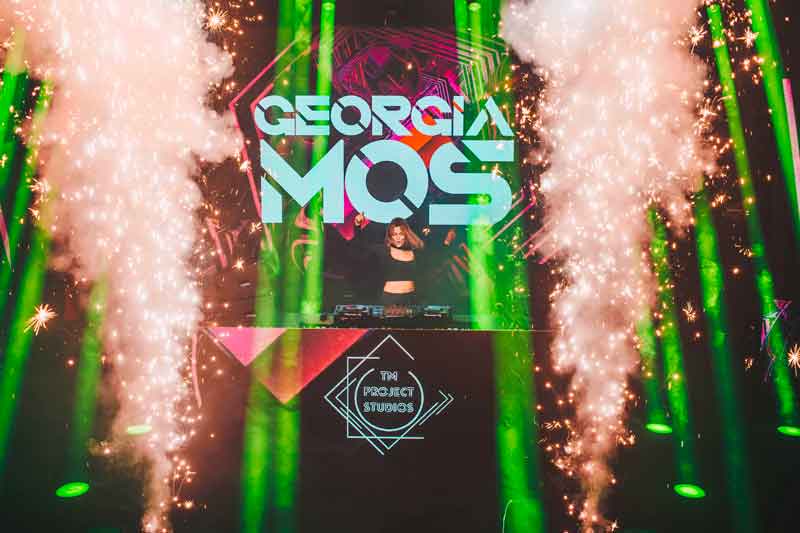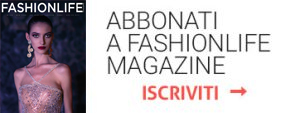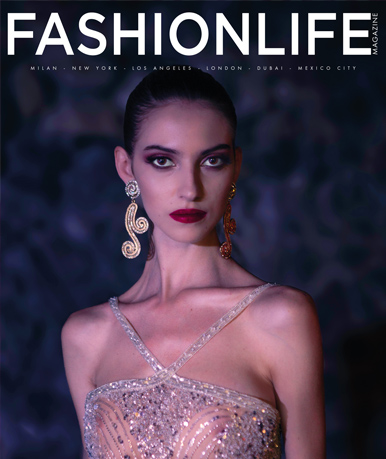“La Primavera – Georgia Mos Remix”.
Una delle dj e producer di fama internazionale tra le donne più seguite e acclamate della scena musicale contemporanea. Disponibile su Spotify e in tutti i digital store. La versione remix ufficiale del noto brano di Jovanotti.

IL REMIX
È disponibile su Spotify e in tutti i digital store “La primavera – Georgia Mos Remix”, la versione remix ufficiale del brano di Jovanotti realizzato appositamente e ad hoc dalla straordinaria e dirompente Georgia Mos, una delle donne dj e producer più seguite d’Italia e non solo con migliaia di followers, nonchè uno dei volti di spicco della scena dance ed house mondiale.
La versione remix by Georgia Mos del brano “La primavera” esce su etichetta Sbam records/Universal.

GEORGIA MOS
Conosciuta come una delle migliori dj e producer tra le donne più acclamate della scena contemporanea, Georgia Mos ha raggiunto in parecchi anni di gavetta una popolarità sempre maggiore che l’ha portata nel corso degli anni a collaborazioni di prestigioso internazionale. Il suo brano “If you had my love”, re-work della celebre hit di J.Lo, ha raggiunto in poco tempo oltre 3 milioni di ascolti su Spotify, sino alla recentissima collaborazione discografica con l’artista svizzera Pull N Way nel brano “Will you follow me?”, sono solo alcune delle chicche a cura di Georgia Mos.
Tra i suoi grandi successi anche “Call 911” feat Ella Loponte e “Amami a tempo” disco cantato e co-prodotto da Georgia per Universal Music, e Ego Music “Y U?” feat Nino Lucarelli.
“Sono davvero onorata di aver avuto l’opportunità di realizzare il remix ufficiale del brano La primavera di Jovanotti – dichiara Georgia Mos – Lorenzo è sempre stato uno dei miei artisti italiani preferiti in assoluto e l’essere stata scelta per questo progetto mi rende davvero entusiasta.
Ho iniziato anche io come lui come dj, lo sento davvero molto vicino al mio mondo e non ho paura di “osare” davanti ad un fuoriclasse come lui.
La mia versione remix del brano è caratterizzato dall’unicità della voce di Jovanotti insieme a sonorità elettroniche e house del mio mondo contemporaneo che si uniscono per l’occasione in un tutt’uno davvero inedito, esplosivo e sorprendente”
“Anche se negli ultimi anni le donne dj hanno più spazio e più credibilità nel mondo musicale penso ci sia ancora parecchia strada da fare – dichiara Georgia Mos – Fortunatamente io ho sempre avuto supporto da parte dei miei colleghi, ancora troppo spesso però noto come per alcuni sia “strano” vedere o ascoltare una donna in consolle, atteggiamento che in Europa e nel mondo c’è meno. Io continuo a lavorare sodo e sogno nuove collaborazioni e produzioni musicali, spero di poter condurre presto un programma radiofonico o televisivo tutto mio”
LE ORIGINI
Originaria di Sanremo ma cittadina del mondo e con una cultura “open mind” si appassiona sin dalla tenera età alla musica studiando da ragazzina canto e chitarra.
L’amore incondizionato per la musica la porta da subito a viaggiare per il mondo, fino a stabilirsi a Londra dove coltiva la sua passione per il Djing e la musica elettronica.
IL SUCCESSO INTERNAZIONALE
Memorabili le sue esibizioni in alcuni tra i più importanti locali come il “Nikki Beach” di Miami, il “1 OAK” di New York, “Vip room” di Cannes e il “Privilege” di Ibiza, solo per citarne alcuni, locali in cui suonare per una donna non è proprio all’ordine del giorno, ma Giorgia ha sdoganato ogni limite con la sola forza della sua musica.
IL SUCCESSO ITALIANO
In Italia invece il successo arriva nel 2016, anno in cui approda nel programma televisivo “TOP DJ” in onda su Italia, come unica concorrente donna.
Il successo televisivo la porta in giro per le consolle più importanti d’Italia ed Europa tanto che nel 2017 inizia il suo tour in Asia (China, India e Nepal) in alcuni tra i più importanti club, venendo premiata come “Best New Comer Djane” nella classifica di Djane Mag mondiale. Nello stesso anno è stata scelta da Adidas per suonare a San Siro.
Nel Marzo2018 esce la sua prima release “Tan Bueno” (Sosumi Record) presentata a Miami durante la Winter Music Conference.
Nel 2019 pubblica “See the light” “Maya”, dischi che le apriranno le porte verso nuovi paesi quali l’Indonesia, Croazia e Scozia.
Appassionata di calcio e sfegatata tifosa Juventina, nel 2021 è stata il volto di Chiamarsi Bomber nel format ”Hai fifa dei bomber?”, dove ha intervistato diversi ospiti del mondo del calcio e del mondo Musicale sul loro canale Twitch. Fra gli ospiti, Francesca Michelin, Gionny Scandal, Pierluigi Pardo, Salvatore Esposito, Enock, Davide Mandrelli.
SHORT BIO
Georgia Mos è una giovane dj-producer e cantante italiana. A 6 anni anni inizia a studiare canto e danza nella sua città Sanremo, discipline che l’accompagneranno nel suo percorso artistico vincendo numerosi concorsi. A 16 anni, notata dalla direzione artistica della sua città, conduce diversi eventi tra i quali “Casa Sanremo”, “La festa della Musica” e “Sanremo Off” al fianco di Massimo Proietto, Mauro Marino e Amedeo Goria. Vince il premio “Volti nuovi” al Festival di Castrocaro condotto da Massimo Giletti su Rai Uno e arriva ottava nel concorso nazionale “Miss Mondo Italia”. Nel 2010 e 2011, notata dal coreografo Franco Miseria, balla nel corpo di ballo del “Festival di Sanremo” con Elisabetta Canalis e Belen Rodriguez. Nel 2012/2013 viene scelta come testimonial per alcuni spot pubblicitari web e tv quali “Mini Cooper”, “Scarabeo” “Mondadori” e “Mediaset Premium”. Nel 2014 si trasferisce a Londra per studiare musica elettronica e djing. Si esibisce in alcuni tra i più importanti clubs come “Nikki Beach” Miami, “1 Oak” New York , “Vip room” Cannes e “Privilege” Ibiza. Nel 2016 viene scelta dal programma televisivo italiano “Top dj” in onda su Italia Uno come unica concorrente donna. Inizia il suo tour in Europa e Asia (China, India, Nepal) in alcuni tra i più importanti clubs e viene premiata come “Best new comer dj of the year” rientrando fino al 2021 nella classifica mondiale di Djane Mag delle Top 100 dj donne del mondo. Pubblica diversi dischi in collaborazione con producers e artisti internazionali superando i 3 milioni di streaming su spotify e collabora con Radio M2o nel 2017 e Radio Zeta nel 2021 come inviata speciale durante il “Festival di Sanremo”. Nel 2021 presenta su Twitch “Bibici show” il nuovo format in diretta ogni domenica sulla piattaforma dedicata ai più giovani e viene scelta da Dj Mag Italia come conduttrice social intervistando i dj e produttori più influenti del panorama Europeo. Partecipa come giudice al programma “All together now” in onda su Canale 5.Nel 2022 viene scelta dal cantante Jovanotti per produrre il suo remix ufficiale del brano “La Primavera”






